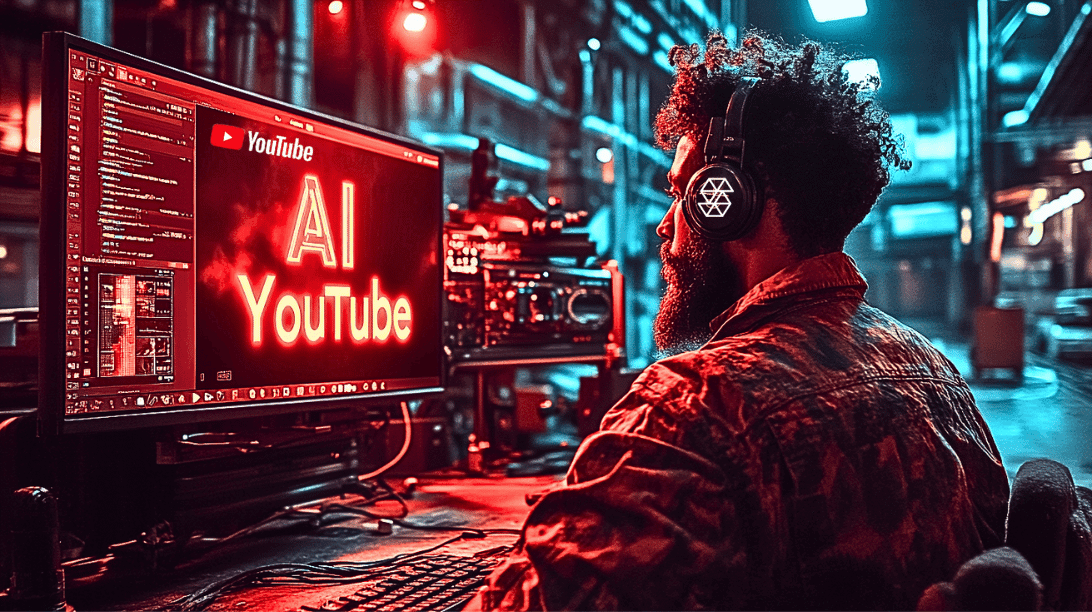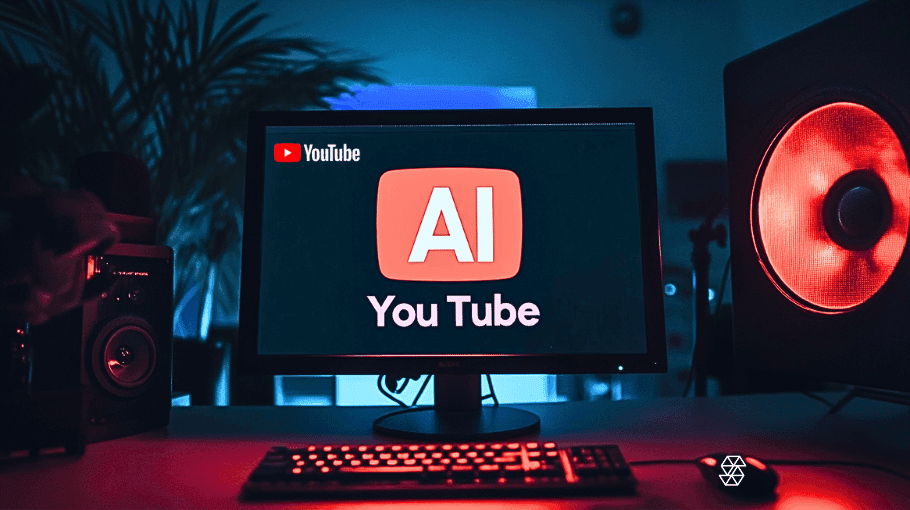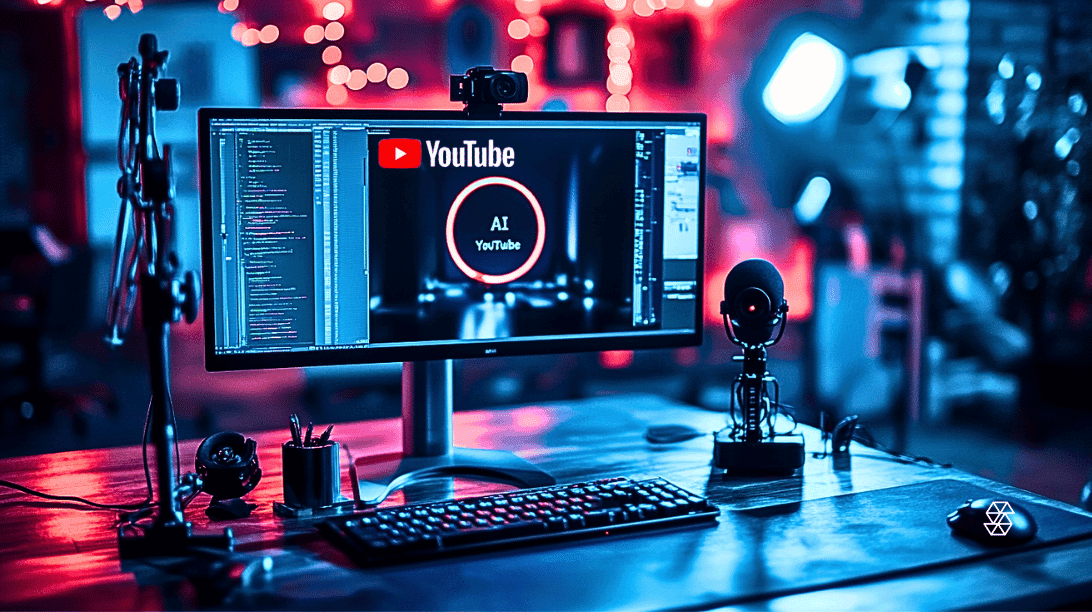Ten Predictions About AI in Hollywood
The magic of Hollywood has always been intertwined with technological advancements. From the introduction of color films to the rise of CGI, technology has consistently reshaped the cinematic landscape.
Now, with the rapid evolution of Artificial Intelligence (AI), we’re on the cusp of another revolution in filmmaking. Drawing insights from various industry sources, here are Skim AI’s ten predictions about how AI will redefine Hollywood in the coming years.
- 1. Rise of AI-Generated Characters
- 2. Voice Cloning Takes Center Stage
- 3. Automated Film Editing
- 4. Personalized Movie Experiences
- 5. Revolution in Casting
- 6. Enhanced Visual Effects
- 7. Scriptwriting Assistance
- 8. Real-time Language Translation and Dubbing
- 9. Predictive Box Office Analysis
- 10. Challenges to Traditional Movie-making Roles
- Intersection of AI and Cinema
1. Rise of AI-Generated Characters
The allure of Hollywood actors has always been a significant draw for audiences worldwide. However, the emergence of AI in Hollywood is set to redefine the very essence of on-screen characters.
Advanced generative AI tools are now capable of creating lifelike digital personas that can mimic human emotions, actions, and dialogues with impeccable precision. These AI-generated characters can seamlessly replace background actors, reducing the need for large casts and simplifying the production process.
Moreover, with the potential to craft characters that are virtually indistinguishable from human actors, filmmakers can explore narratives that were previously deemed impossible. This not only reduces costs but also opens up a realm of possibilities for storytelling.
2. Voice Cloning Takes Center Stage
The film and TV industry has always relied on iconic voices to bring characters to life. With the advancements in AI technology, voice cloning is set to revolutionize this space. This technology can replicate the voice of past legends, allowing them to “perform” posthumously, or even create entirely new vocal personas for fictional characters.
For television producers and motion picture creators, this means the ability to have a consistent voice for a character, even if the original screen actor is unavailable. Furthermore, it can breathe life into historical figures, ensuring authenticity in biopics or documentaries. As AI continues to refine this technology, the line between real and cloned voices will blur, offering unprecedented opportunities for the screen actors guild and producers alike.

3. Automated Film Editing
Film editing, a cornerstone of the motion picture creation process, is on the brink of an AI-driven transformation. Traditional editing requires meticulous attention to detail, with editors sifting through hours of footage to craft a cohesive narrative. However, AI tools equipped with advanced algorithms can now analyze this footage, select the best shots, optimize transitions, and even suggest narrative changes.
This not only expedites the editing process but also ensures that the storyline resonates with the intended audience. For television producers, this means quicker turnarounds for episodic content and the ability to adapt in real-time based on audience feedback. As AI in Hollywood becomes more prevalent, the film and TV industry will witness a shift from manual editing to a more collaborative approach, where editors and AI work in tandem to produce cinematic masterpieces.
4. Personalized Movie Experiences
In the age of streaming platforms and on-demand content, viewers have grown accustomed to personalized recommendations. But what if the movie itself could adapt to the viewer?
With the integration of AI in Hollywood, this isn’t just a pipe dream. Imagine a film that changes its storyline based on your past viewing history or a character that evolves based on your emotional reactions. AI tools are paving the way for real-time content adaptation, ensuring every scene resonates with the viewer. This level of personalization could redefine the cinematic experience, making each movie viewing as unique as the individual watching it.
5. Revolution in Casting
Casting directors have always relied on intuition, experience, and sometimes sheer luck to find the perfect fit for a role. But what if data could make this process more precise? With AI technology, casting decisions could be transformed.
Algorithms can sift through vast databases of Hollywood actors, analyzing their past performances, audience reception, and even predicting on-screen chemistry with co-stars. This data-driven approach could spotlight not just established names but also talented newcomers, ensuring every character, from lead roles to background actors, is cast to perfection. The traditional casting couch might soon give way to an AI-driven casting dashboard.
6. Enhanced Visual Effects
Hollywood’s love affair with visual effects is legendary. From the fantastical realms of Middle Earth to the far reaches of outer space in Star Wars, visual effects bring stories to life. With AI tools becoming more sophisticated, the film and TV industry is on the cusp of a visual revolution.
AI can craft hyper-realistic creatures, simulate intricate environmental conditions, and even predict audience reactions to specific visual spectacles. The result? Movies that are not just visually stunning but also emotionally resonant.

7. Scriptwriting Assistance
Every great movie begins with a compelling script. But even the best writers sometimes hit a creative block. Enter AI. With the capability to analyze thousands of successful scripts, predict audience preferences, and even generate dialogues, AI is set to become an indispensable tool for screenwriters.
Whether it’s refining dialogues, suggesting plot twists, or ensuring the narrative aligns with audience preferences, AI offers a fresh perspective. The writers’ room of the future might just have a virtual seat for AI, ensuring every script is a potential blockbuster.
8. Real-time Language Translation and Dubbing
In today’s globalized world, a movie’s success isn’t just determined by its performance in domestic markets but also its appeal to international audiences. AI in Hollywood is set to bridge the language gap like never before.
Imagine watching a film and having it seamlessly dubbed or subtitled in your native language in real-time. This isn’t just about convenience; it’s about inclusivity. By breaking down language barriers, AI ensures that cinematic masterpieces are accessible to all, regardless of linguistic differences. This not only broadens a movie’s audience base but also fosters a deeper cultural exchange through film.

9. Predictive Box Office Analysis
The stakes are high in the motion picture industry. A movie’s success or failure can have significant financial implications for studios. Enter predictive AI algorithms. These tools can analyze a plethora of factors, from a movie’s genre and star cast to its release date and competition, to predict its box office performance.
Such insights are invaluable for studios, allowing them to tailor their marketing campaigns, adjust release dates, or even re-strategize distribution channels for maximum impact. In an industry where fortunes can change overnight, AI offers a semblance of predictability.
10. Challenges to Traditional Movie-making Roles
Every revolution comes with its set of challenges, and the integration of AI in filmmaking is no exception. As AI tools become more prevalent, traditional roles within the film and TV industry, from screen actors to background actors, will undergo significant transformation.
While AI promises efficiency and innovation, it also raises concerns about job displacement and the loss of the human touch in creative processes. The Screen Actors Guild, television producers, and other industry stakeholders will need to navigate this delicate balance between technological advancement and preserving the essence of traditional filmmaking.
Intersection of AI and Cinema
The intersection of artificial intelligence and the world of cinema heralds a new era for the entertainment industry. As movies become more personalized, globally accessible, and technologically advanced, both filmmakers and audiences stand to benefit.
However, as with any significant change, challenges and apprehensions will arise. The key lies in embracing the possibilities AI offers while staying rooted in the timeless magic of storytelling. As the curtains rise on this new chapter in Hollywood, one thing is certain: the cinematic experience, enriched by AI, will continue to captivate hearts and minds across the globe.






